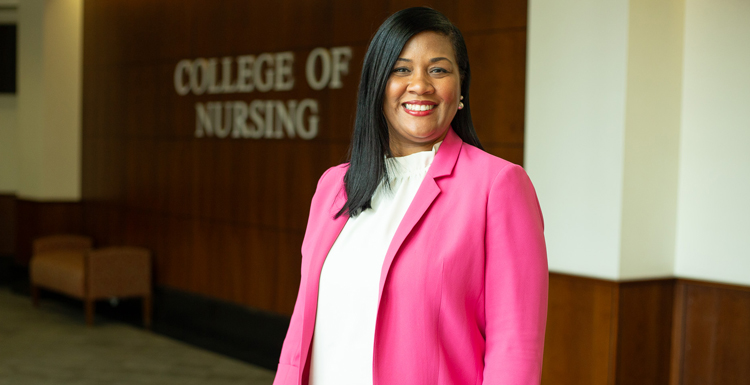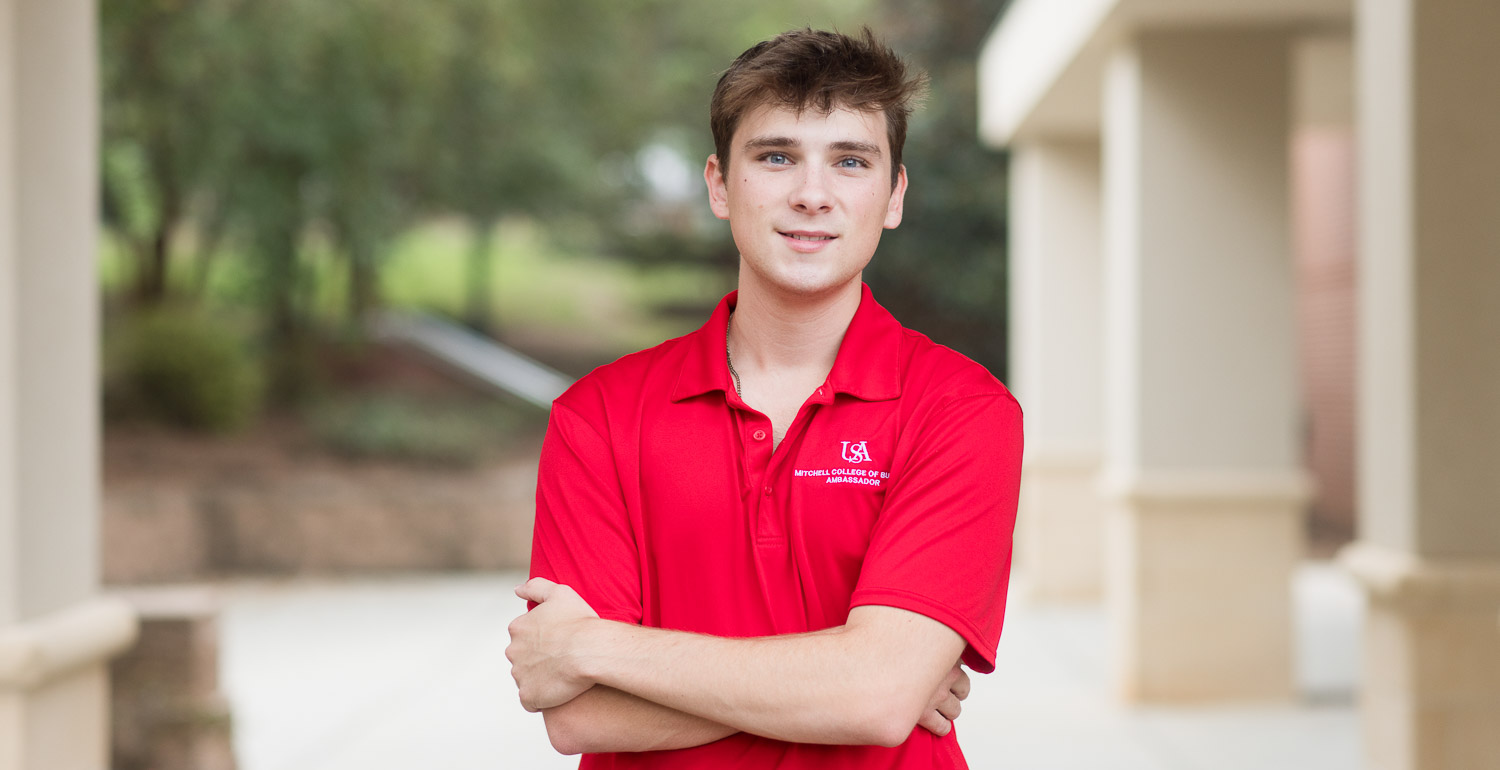USA College of Nursing Receives $2.5 Million
Posted on July 28, 2023

The University of South Alabama College of Nursing recently was awarded a $2.5 million grant from the Health Resources and Services Administration for RISE ANEW, its new and innovative Advanced Nursing Education Workforce program to address the urgent need for high-quality primary care services.
HRSA, an agency of the U.S. Department of Health and Human Services, awarded the four-year grant to strengthen healthcare in Mobile’s underserved and rural communities.
“We are excited about this new grant award,” said Dr. Heather Hall, dean and professor of the College of Nursing. “As we continue to focus on ways to serve our community, we strongly believe that as a result of this program’s efforts, the nurse practitioner workforce will increase in rural and underserved communities. The funding from this grant will also improve access to quality care and improved health outcomes. We applaud the great work of Project Director Dr. Shanda Scott and Project Coordinator Dr. Emily Sawyer Bentley.”
The full name of RISE ANEW describes the program’s goals: Recruit and Increase primary care nurse practitioner diversity; Serve rural, urban and tribal populations; and Expand academic-clinical partnerships Advanced Nursing Education Workforce. Scott, assistant professor and director of diversity, equity and inclusion, said the multifaceted program is creatively designed to increase the number of primary care nurse practitioners.
“We are thrilled and honored to receive this competitive grant award,” she said. “The funding will support the training and graduation of advanced practice registered nurses. This includes scholarships, stipends, the strengthening of academic-clinical partnerships and supporting clinical faculty and preceptors, which are experienced licensed clinicians who will teach the courses.”
Twenty nurse practitioner students are expected to make up the program’s first cohort in the fall of 2023.
“I, along with the RISE ANEW Project Coordinator Dr. Emily Bentley, will be responsible for the recruitment, enrollment and clinical placement of each RISE ANEW trainee,” Scott said. “Our goal is to support up to 20 nurse practitioner students each year, with an estimated 80 trained over the four-year period of the grant, including students from disadvantaged and diverse backgrounds.”
The students will participate in a three to six month clinical immersion with an experienced community-based primary care provider. Clinical partner agencies will be the Mobile County Health Department and Franklin Primary Health Center.
According to Bentley, director of clinical affairs in the USA College of Nursing, the RISE ANEW trainees will begin clinical rotations at the partnering agencies during the spring 2024 semester.
“I am pleased to be collaborating with Dr. Scott on this grant,” Bentley said. “The RISE ANEW grant will allow South Alabama nurse practitioner students to get more advanced hands-on experience managing social determinants of health, which will benefit their patients and communities.”
Scott said the nurse practitioner students will receive a scholarship award and stipend to assist with tuition, fees and living expenses.
“This clinical immersion is designed to provide nurse practitioner students with valuable skills necessary to deliver quality and culturally competent healthcare to underserved populations with financial support,” she said. “Students will have the opportunity to complete the Diversity, Equity and Inclusion in Healthcare Certificate program, enhancing their competency in social determinants of health and population-focused health disparities.”
The COVID-19 pandemic also highlighted health disparities in underserved communities, with cancer, diabetes, heart disease, and obesity/lack of physical activity identified as health priorities to address.
“We hope that the RISE ANEW students trained in this program will seek employment opportunities in underserved communities that need primary care providers,” Scott said. “We are excited to receive this funding, not only for our students but also for our collaborating partners and the many patients they will serve.”



